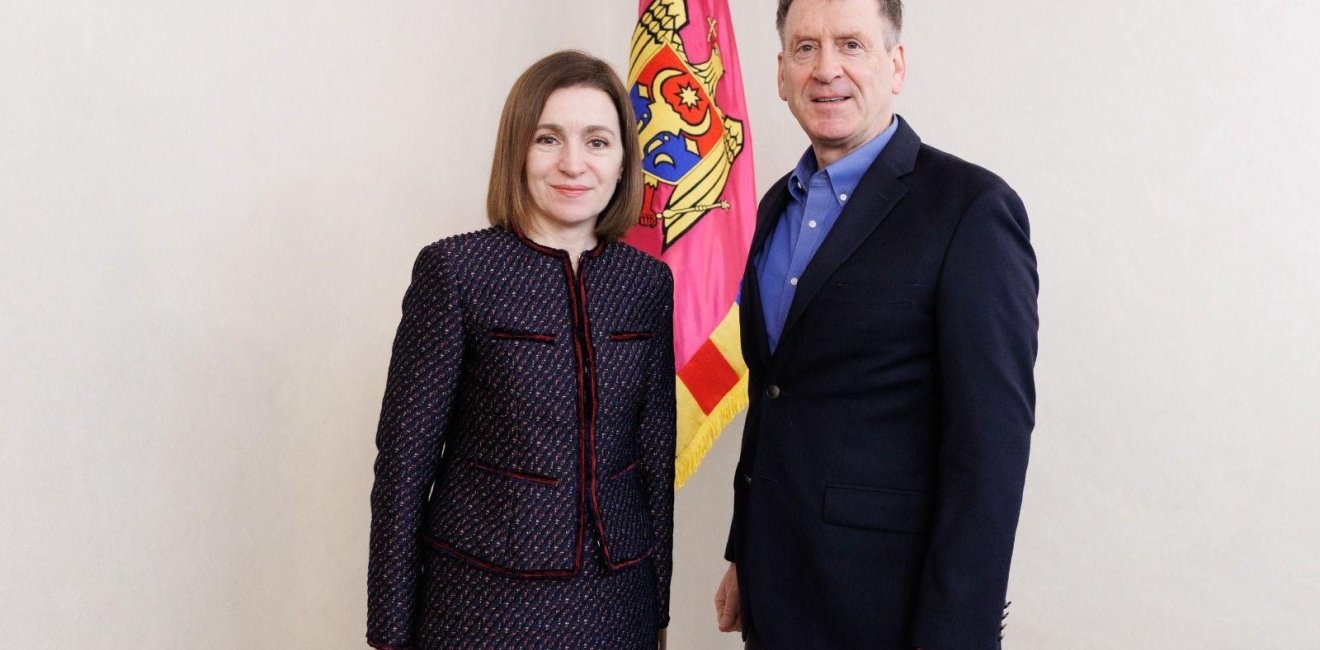
A blog of the Wilson Center

Prior to Russia’s 2022 invasion of Ukraine, 99 percent of Moldova’s energy needs were met through a Kremlin-controlled pipeline. Two years later, Moldova has largely stopped buying Russian natural gas, it’s continuing to criticize Russian expansionist policies, and it’s on a path to becoming a full member of the EU.
Few countries would appear to be more vulnerable to Russian pressure than the small, landlocked Republic of Moldova. Moldova is one of the poorest countries in Europe in terms of its GDP, and it has long been reliant on Russian oil and gas to meet its energy needs. Russia has also been the largest market for one of Moldova’s most prized exports: its award-winning wines.
Vladimir Putin has responded belligerently to Moldova’s criticism of his attacks on Ukraine. The Kremlin has reportedly mobilized its disinformation forces to try and weaken the government of President Maia Sandu and taken steps to ratchet up the economic heat on the Moldovan people. Kremlin-controlled energy company Gazprom has sharply reduced its deliveries to Moldova even as energy prices have been rising throughout Europe. Russia has also curtailed the importation of Moldovan agricultural products, including nearly all wine imports.
For what it’s worth, a small portion of Moldova, “Transnistria,” has claimed independence from the government in its capital Chișinău. While such status is not internationally recognized, Moscow treats Transnistria differently than the rest of Moldova. For example, Russia continues to supply energy to Transnistria at no cost to its residents, while claiming that such supplies must be paid by Chișinău.
Moldova’s defiance comes with significant direct and indirect costs. By last winter, inflation in Moldova was the second highest in Europe, with households forced to use 70% of their income on covering their utility bills alone. In terms of indirect costs, the small Eastern European country has by UNHCR’s account “received more refugees from Ukraine per capita than any other country worldwide.” Because much of Moldova’s electricity is tied to Ukraine’s energy infrastructure, Russian attacks on Ukraine have also caused power outages in Moldova. If all that weren’t enough to increase anxieties among its 3.4 million or so residents, reports of military debris discovered along its border with Ukraine are a constant reminder of Russia’s military might.
While few observers are surprised by Moscow’s efforts to punish the Sandu administration and other governments critical of its war on Ukraine, what has apparently surprised many—including the Kremlin—is Moldova’s resilience and Europe’s resolve. Instead of turning away Ukrainian refugees and others fleeing Russia, President Sandu has granted them “Temporary Protection” status. Instead of softening its public opposition to Kremlin policies in hopes of softening Putin’s weaponized energy policies, Moldova has taken steps to end natural gas purchases from Russia’s Gazprom. It has also begun construction of cross-border electricity transmission line that will enable it to import electricity directly from Romania and other EU sources.
European leaders have expressed their support for the pro-European leadership in Chișinău by moving to soften the burden of Moscow’s economic attacks. In mid-2023, the EU adopted a regulation which “provides temporary full trade liberalization for Moldovan agricultural products.” In December, the European Council announced the commencement of negotiations to enable Moldova to join the European Union. In response, President Sandu quickly announced plans for a 2024 constitutional referendum which, assuming it passes, would enshrine in Moldova’s constitution a path towards EU membership.
By most accounts, when Russia launched its invasion in February 2022, President Putin believed Ukraine could be captured in a matter of days. He also assumed his victory would put a halt to any neighbor’s efforts to more closely align with the West. Two years later, Moldova, one of Europe’s smallest and poorest countries, a country with a history of energy dependence on Russia, has begun talks to formally join the EU and publicly reaffirmed its position that Putin must be stopped for Moldova’s sake and that of all of Europe.
To that, I’ll raise a glass of Moldovan wine.
This blog was researched with the assistance of Camila Guerrero.
Author

Explore More in Stubborn Things
Browse Stubborn Things
Spying on Poachers

China and the Chocolate Factory

India: Economic Growth, Environmental Realities
